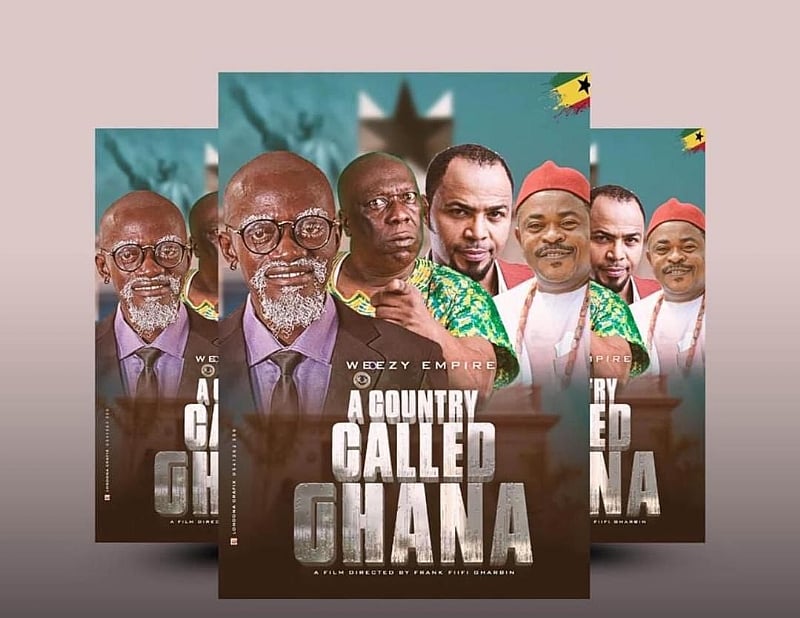Kwadwo Nkansah, the renowned Kumawood actor and producer better known as Lil Win, has initiated legal action against Nsawam-based Abrempong TV, demanding GHS1 million in compensation for the alleged unauthorized broadcast of his recent film, “A Country Called Ghana.” Representing Lil Win’s production company, Weezy Empire, the law firm NEXLAW issued a cease-and-desist notice to Abrempong TV, accusing the station of copyright infringement and causing substantial financial losses through repeated broadcasts of the film without obtaining the necessary permissions. The unauthorized airing, confirmed by numerous individuals and supported by video evidence, represents a blatant violation of Weezy Empire’s copyright under Ghanaian law, according to the legal notice.
The crux of the legal dispute lies in Abrempong TV’s alleged disregard for Weezy Empire’s copyright, encompassing both economic and moral rights. The unauthorized broadcasts deprived Weezy Empire of the potential revenue that would have been generated through legitimate licensing agreements or distribution channels. Furthermore, the unauthorized airing potentially undermines the film’s market value and future distribution prospects, impacting Weezy Empire’s ability to profit from its creative work. The moral right of attribution, which grants the creator the right to be recognized as the author of their work, is also at stake. By airing the film without acknowledging Weezy Empire’s ownership, Abrempong TV effectively disregards Lil Win and his production company’s creative contribution.
The cease-and-desist notice categorically demands that Abrempong TV immediately cease all further broadcasts of “A Country Called Ghana” and refrain from airing any future productions by Weezy Empire without prior consent. This directive aims to prevent further infringement and protect Weezy Empire’s intellectual property rights. The demand for GHS1 million in compensation reflects the gravity of the alleged infringement and the perceived financial damage inflicted upon Weezy Empire. This substantial sum aims to redress the lost revenue and potential future losses resulting from the unauthorized broadcasts.
The legal team representing Weezy Empire has presented Abrempong TV with a 14-day ultimatum to comply with the demands outlined in the cease-and-desist notice. This timeframe provides the television station with an opportunity to rectify the situation by halting the unauthorized broadcasts, acknowledging the copyright infringement, and agreeing to the compensation demanded. Should Abrempong TV fail to meet the demands within the stipulated timeframe, Weezy Empire, through its legal representatives, has indicated its intent to pursue further legal action. This could involve filing a lawsuit against the television station, seeking court-ordered injunctions to prevent future infringements, and pursuing additional monetary damages to cover legal costs and other losses incurred.
This legal action underscores the importance of copyright protection in the film industry, particularly in the face of unauthorized distribution and broadcasting practices. Copyright laws are designed to protect the creative works of artists and producers, granting them exclusive rights to control the use and distribution of their content. Unauthorized broadcasts, like the one alleged against Abrempong TV, not only deprive creators of their rightful earnings but also undermine the integrity of the creative industry as a whole. By taking a firm stance against copyright infringement, Lil Win and Weezy Empire are asserting their rights and sending a clear message that unauthorized use of creative works will not be tolerated.
The outcome of this legal dispute could have significant implications for the Ghanaian film industry and the broader issue of copyright protection. A successful legal challenge by Lil Win and Weezy Empire could set a precedent for future cases involving unauthorized broadcasts and strengthen the enforcement of copyright laws in Ghana. This case also highlights the need for increased awareness among media outlets and content distributors regarding the importance of obtaining proper licenses and permissions before broadcasting or distributing copyrighted material. The increasing accessibility of digital platforms and the ease of content sharing makes copyright protection even more critical, and cases like this serve as a reminder of the legal ramifications of copyright infringement.














